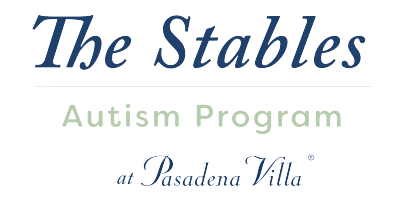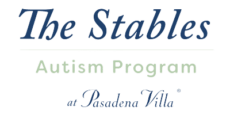About 1 in 68 children has been identified with Autism Spectrum Disorder (ASD) according to estimates from the Centers for Disease Control and Prevention (CDC). However, the number of adults living with ASD is harder to determine, as autism symptoms can overlap with symptoms of other mental illnesses, such as anxiety. Some sources estimate that 20% of individuals living with autism are over the age of 22.
Programs Aimed at Employment
Studies show that between 60-80% of adults with autism are unemployed, but companies are beginning to change this statistic. In April of 2017, 50 of the nation’s top companies, including JP Morgan, Ford, and Ernst & Young, met at the Autism at Work Summit to discuss how to bring more autistic adults into the workplace. The summit took place at the Palo Alto campus of the software maker, SAP, a global company employing over 150 nationalities, and one of the first companies to integrate autistic individuals into the workplace. SAP has hired over 168 adults on the spectrum in the past five years, with the goal of employing more than 600. During the summit, companies, including Microsoft and Hewlett-Packard, shared best practices for effectively hiring autistic candidates that are creative, detail-oriented, and technically qualified to perform jobs.
Several companies, including Microsoft, have successfully launched neurodiversity programs that aim to employ adults who are on the spectrum. Once hired, these employees are assigned a mentor and have social skills training incorporated into their onboarding process. Employers have begun to realize that individuals with autism are assets to the company, especially in the engineering and technology industry, where skills such as attention to detail, extended focusing, and mathematical concepts are in demand.
In 2017, Autism Speaks partnered with Microsoft to promote employing people with autism and other neurological issues. During the Microsoft Supplier Program Summit, the duo released the Autism Empowerment Kit, which offers guidance, recommendations, and resources to employers to empower individuals with autism as they work through recruitment to training and career development.
Preparing Young Adults for the Future
As companies begin to make changes in their hiring practices, colleges and universities are taking the next step to prepare young adults for the workforce. According to College Autism Spectrum, over 15 colleges and universities in the U.S. offer programs that help students with autism, one such program being at The University of Tennessee Chattanooga.
Established in 2008, the MoSAIC program helps students develop social and organizational skills, such as time management, communication, and connecting with resources. Students meet weekly with their coach to discuss any issues that may have risen and to help them navigate social situations and foster on-campus engagements.
Amy Rutherford, LPC, MHSP, Assistant Director of the MoSAIC program says, “From day one we begin preparing these students for transition into the professional world. MoSAIC allows us to work closely with our students as they find their strengths and identify with each other in a positive environment.”
As students proceed further into the program, they use a specific curriculum – Turning Skills and Strengths into Careers for Young Adults with Autism Spectrum Disorder: The BASICS College Curriculum, and Developing Workplace Skills for Young Adults with Autism Spectrum Disorder: The BASICS College Curriculum. This curriculum is designed to develop the specific skills of those who are on the spectrum and to help them make connections and find their balance of where these skills and talent align. Students also practice soft skills in a professional setting and simple “watercooler conversation,” such as saying, “good morning” and “how are you today?”
Adds Jaime Butler, External Program Specialist, “We find that individuals with autism are often overlooked or dismissed due to preconceived notions surrounding their capabilities. The reality is that while they do face challenges that are related to their autism, they also bring incredible strengths to the table that would greatly benefit any employer. The way they see the world around them, the passions they cultivate, the level of commitment to quality, the sense of loyalty – these things and more are what set them apart as valuable employees.
As awareness and acceptance of autism increases worldwide, it is imperative that companies become more intentional in expanding their definition of diversity to include neurodiverse individuals like those on the autism spectrum. This inclusion may require them to adapt to hiring processes and management styles, but the investment will ultimately benefit all parties involved.”
Moving Forward
It is important to remember that autistic individuals have a lot to offer not only to the company they work for but also to the professional society. We are all responsible for their inclusion and success, and supporting different skills, abilities, and needs in the workplace is vital.
- Social Communication: Individuals with ASD can often find the complexity of non-verbal and verbal cues complicated and can take things people say literally. Others may also have difficulty understanding rhetorical questions, sarcasm, metaphors, and irony. Speaking clearly and consistently can help autistic individuals understand what is being said or asked of them.
- Social Interaction: Individuals with autism may have difficulty expressing and understanding the feelings of others, such as asking if they are okay in a stressful situation. At times, they may appear socially inappropriate when interacting with others, such as standing too far or close during conversations. Proper training can help co-workers understand that autism affects social interaction and communication.
- Social Imagination: Individuals with autism may find it difficult to plan, or to cope with change, and are more comfortable with a standard routine. While a change in the workplace cannot always be predicted, it is important to explain any changes directly to these employees, especially if it will affect their routine.
- Sensory Sensitivity: Autistic individuals can be overly sensitive to things such as sight, sound, touch, smell, or taste. The bright lights or noise in the workplace can be distressing or painful. It is essential to have an open conversation and determine what may be required in their work environment to avoid exposure to these stressors.
Autism can be an asset to the workplace and understanding their needs is key to success.
Treating Autism
Early treatment and proper care can improve the symptoms of autism and an individual’s ability to function. There is no single best treatment for ASD, so plans should be tailored to address specific needs. At Pasadena Villa, we offer a customized treatment program that incorporates therapy, such as Cognitive Behavioral Therapy, with our social integration model, which offers real-time life strategies. Pasadena Villa’s Social Integration Model TM allows clients to participate in social situations in the community while engaging with our clinicians who provide ongoing feedback, support, and direction to assist them in meeting their treatment goals as they regain control of their life. Our professional team works hand-in-hand with residents to help them learn new coping strategies as they navigate their life outside of treatment.
Many individuals with autism lead full and productive lives and all deserve the opportunity to join the workforce. As companies emerge with new programs that foster and support those with autism, these individuals move towards a better outcome in their life.


 Call
Call